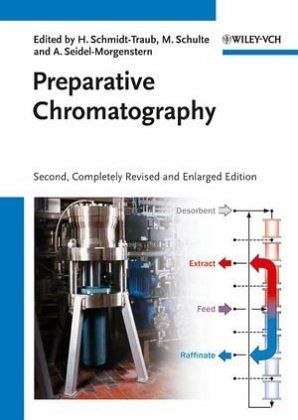Professor Schmidt-Traub was Professor for Plant and Process Design at the Department of Biochemical and Chemical Engineering, University of Dortmund, Germany until his retirement in 2006. He is still active in the research community and his main areas of research focus on preparative chromatography, down stream processing, integrated processes, plant design and innovative energy transfer. Prior to his academic appointment, Prof. Schmidt-Traub gained 15 years of industrial experience in plant engineering.
Prof. Seidel-Morgenstern is the Director of the Max Planck Institute for Dynamics of Complex Technical Systems, Magdeburg, Germany and holds the Chair in Chemical Process Engineering at the Otto-von-Guericke-Universität, Magdeburg, Germany. He received his Ph.D. in 1987 at the Institute of Physical Chemistry of the Academy of Sciences in Berlin. From there he went on to work as postdoctoral fellow at the University of Tennessee, Knoxville, USA. In 1994 he finished his habilitation at the Technical University in Berlin. His research is focused on New Reactor Concepts, Chromatographic Reactors, Membrane Reactors, Adsorption and Preparative Chromatography and Separation of Enantiomers amongst others.
Dr. Michael Schulte is Senior Director Emerging Businesses Energy at Merck KGaA Performance Materials, Darmstadt, Germany. In his Ph.D. thesis at the University of Münster, Germany he developed new chiral stationary phases for chromatographic enantioseparations. In 1995 he joined Merck and has since then been responsible for research and development in the area of preparative chromatography, including the development of new stationary phases, new separation processes and the implementation of Simulated Moving Bed-technology at Merck. In his current position one of his areas of research is the use of Ionic Liquids for separation processes.





